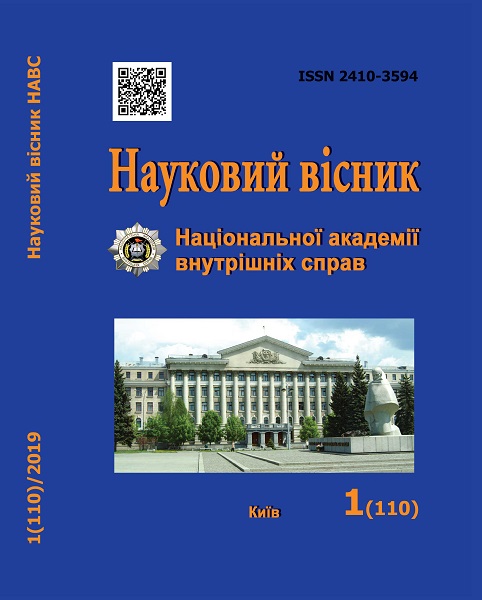The Internal Conviction in the Evaluating Evidence in the Constitutional Judicial Process
Abstract
The purpose of the study is a comprehensive analysis of virtually unexplored issues of the formation of the inner conviction of a judge of the body of constitutional jurisdiction as a subject of proof in the domestic constitutional process. The author focuses particular attention on clarifying the general and distinctive features of the formation of the internal conviction of subjects of proof in foreign bodies of constitutional jurisdiction and judicial bodies of general jurisdiction. It is planned: firstly, to determine the philosophical and legal principles of the procedure for assessing evidence in the
domestic constitutional court process, which today are not only poorly investigated, but also legislatively unregulated; the second, to investigate the degree of influence on the formation of the internal conviction of the judge of the constitutional court in the process of assessing the evidence of objective and subjective factors; the third, to determine the differences in the procedure for the judge to pronounce the constitutional authority on the assessment of evidence by a collegial judicial body by way of a vote and in a separate opinion on the basis of internal conviction; the fourth, on the basis of the results of the study, identify ways to further research the problem and justify the need for its legislative settlement. For the solution of the tasks the general scientific methods of cognition were used, in particular analysis, synthesis,
deduction, induction, logical, systemic, as well as specific scientific methods of cognition in the field of law – formal-legal, legal-hermeneutical, comparative-legal, as well as a method of analysis of the practice of judicial constitutional control. The empirical basis of the study consists of the works of domestic and foreign lawyers who studied theoretical issues of judicial evidence and evidence, acts of domestic and foreign law, the practice of the Constitutional Court of Ukraine. The scientific novelty of the work is that this is the first domestic comprehensive study of the process of forming the internal conviction of the subjects of evidence in assessing evidence in a constitutional court proceeding. According to the results of the research, the author substantiates that the philosophical and legal principles of the procedure for assessing
vidence in the domestic constitutional court proceeding are still left out of the attention of law science and lawmakers. The practice and theory of the constitutional court process shows that the formation of the internal conviction of the judge of the constitutional court on the assessment of evidence has a significant impact on the objective (circumstances and facts that were established during the consideration of the case), and subjective factors (personal traits of character and
consciousness: worldview, professionalism, legal awareness and justice). Being a form and a reflection of objective
reality, the internal conviction of one judge is not a criterion for knowing the truth in a constitutional court process, since this criterion is solely the decision of the collegial body. Problems of proving in the constitutional court process require constant attention from the science of the philosophy of law and the urgent legislative regulation.
Keywords: inner conviction; emotion; truth; evaluation of evidence; mental activity; litigation; doubt; fact.
Downloads
Abstract views: 324 PDF Downloads: 354
- Authors reserve the right to authorship of their own work and transfer to the magazine the right of the first publication of this work under the terms of the Creative Commons Attribution License, which allows other persons to freely distribute published work with mandatory reference to authors of the original work and the first publication of an article in this magazine.
- Authors have the right to enter into separate additional agreements on non-exclusive dissemination of the work in the form in which it was published in the journal (for example, to post an article in the institution's repository or to publish as part of a monograph), provided that the link to the first publication of the work in this journal is maintained.
- The journal's policy allows and encourages the posting of articles by authors on the Internet (for example, in electronic storehouses of institutions or on personal websites), both before the submission of this manuscript to the editorial office and during its editorial processing, as this contributes to the creation of a productive scientific discussion and positively affects the efficiency and dynamics of citing the published work.




